
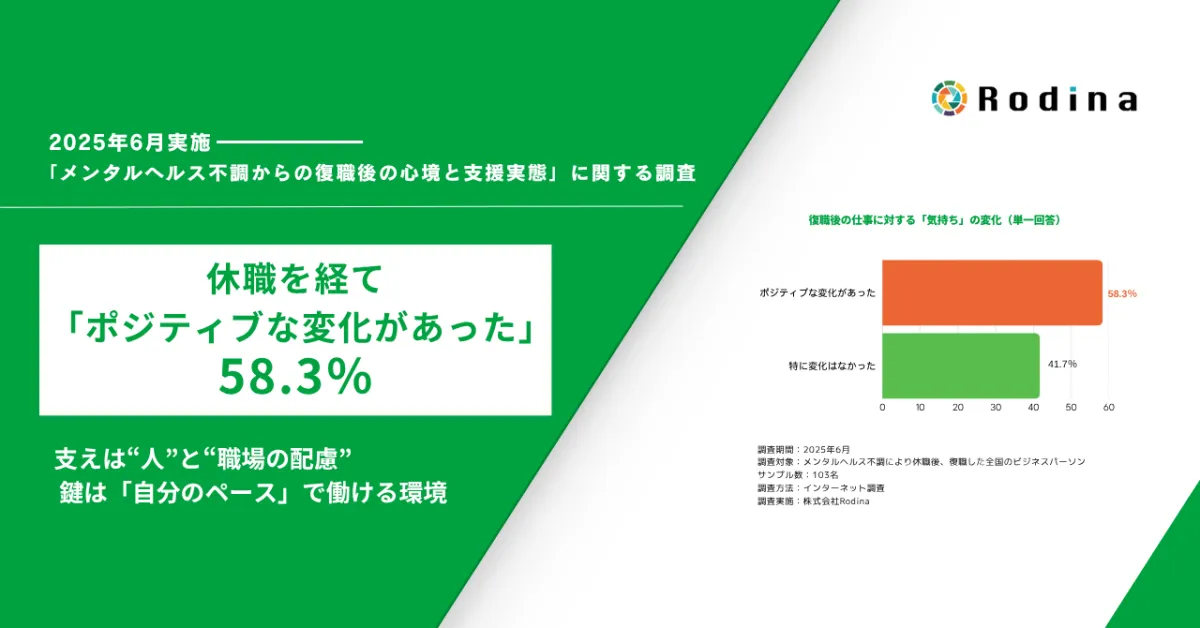
Survey Shows Positive Changes After Returning to Work Post-Mental Health Issues
Overview
In a recent survey conducted by Rodina, a company specializing in reemployment support, it was found that a significant number of business professionals who returned to work after experiencing mental health issues reported transformations in their outlook. Specifically, 58.3% of 103 respondents noted they felt positive changes following their return from mental health-related leaves, such as depression and adjustment disorders. This finding underscores the resilience many individuals display and highlights the importance of supportive interventions during their recovery process.
Key Findings
1. Positive Self-Reflection After Return:
Among the respondents, several experiences were identified as pivotal to their recovery. Notable mentions include the ability to work at their own pace (45.6% reported this as a significant factor) and the realization that they still had contributions to make in their workplaces (35.0%). These personal insights indicate that a supportive work environment where individuals can regain a sense of agency can lead to successful recovery.
2. Support Systems Are Vital:
The survey highlighted that professional support from medical facilities and counselors was deemed essential, with 42.7% citing such expertise as a foundational component of their recovery. Additionally, emotional backing from family and friends (39.8%) and understanding within the workplace (30.1%) were also recognized as crucial support systems. This illustrates that recovery is not solely reliant on individual willpower but is significantly enhanced by community and professional support.
3. Lingering Anxiety and Continuous Need for Care:
Although nearly half (47.6%) of the participants reported that their pre-return anxieties were resolved, around 26.2% still experienced ongoing concerns. This calls attention to the necessity for ongoing mental health care even after returning to work; the journey does not end with re-employment.
4. Valuable Workplace Adaptations:
The survey respondents expressed gratitude for certain workplace adaptations post-return. Flexible work hours (38.8%) and adjustments in workload (41.7%) were well-received, demonstrating clear instances where thoughtful employer policies can facilitate smoother transitions back into the workplace. However, participants indicated a desire for improvements in psychological safety and the sustainability of such supportive practices.
5. Reflections on Support:
Free response entries revealed emotional testimonies about the significance of support received during their return. Many respondents shared heartfelt moments of being welcomed back by their teams with applause and flowers, emphasizing the importance of emotional connections.
- "On my first day back, all my coworkers welcomed me warmly, and I felt overwhelmed with gratitude.
- "I've come to appreciate a new perspective on kindness, motivated by my own struggles. I make it a point to consider others' feelings.
- "Feeling trusted by the company filled me with happiness.
These voices reflect a common thread: the profound impact of supportive relationships in the workplace cannot be overstated in the recovery process.
6. Looking Ahead:
As the data suggests, success in re-employment is not merely about job performance but also about the emotional and psychological reassurances individuals receive. It is essential for organizations to create environments that nurture psychological safety and foster supportive connections among employees.
Rodina, established in 2017, aims to enhance workplace integration for individuals overcoming mental health challenges. Their comprehensive reemployment programs equip participants with the tools they need to succeed, while also guiding organizations towards developing sustainable support systems. Future endeavors will focus on fine-tuning these programs and advocating for improved mental health awareness across workplaces.
Conclusion
The study conducted by Rodina serves as an encouraging indication of how, with the right support, individuals can navigate their journeys back to work following mental health challenges. Organizations that prioritize significant psychological and emotional support can cultivate healthier work environments, leading not only to increased employee satisfaction but also to enhanced workplace productivity.
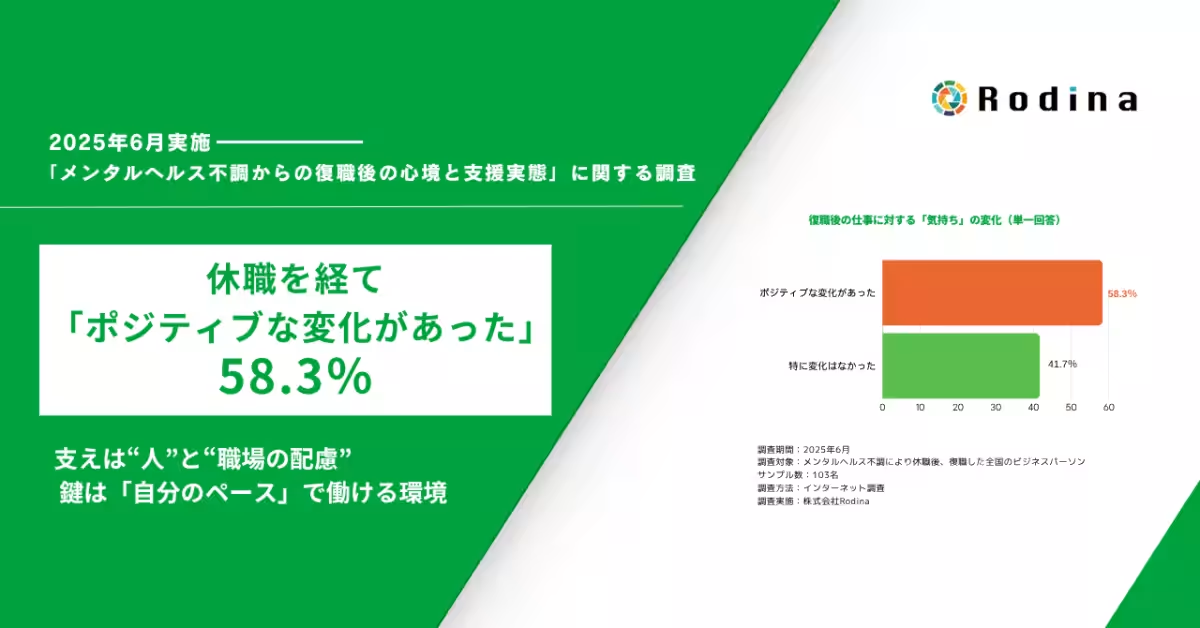
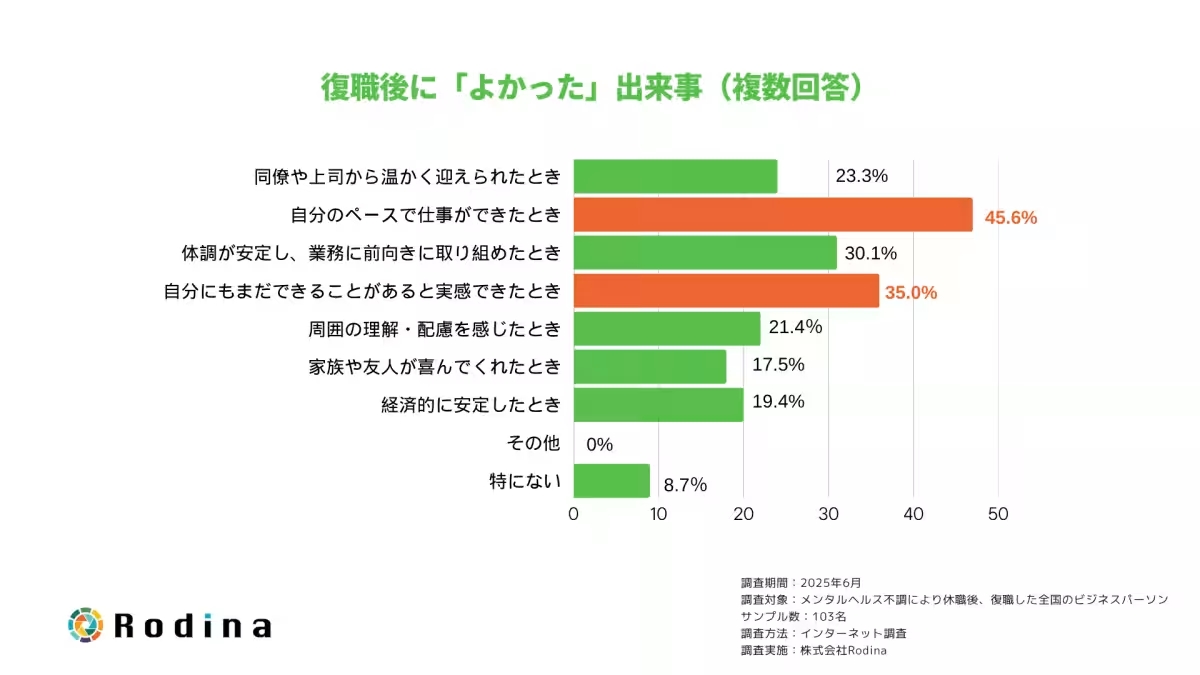
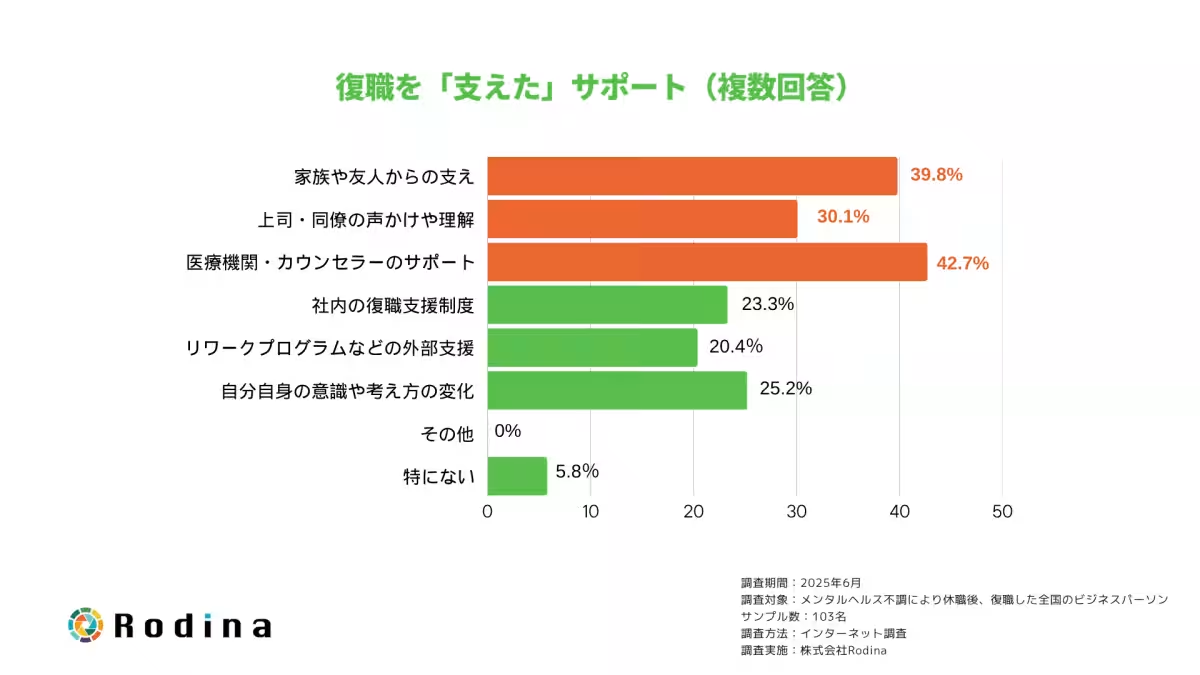
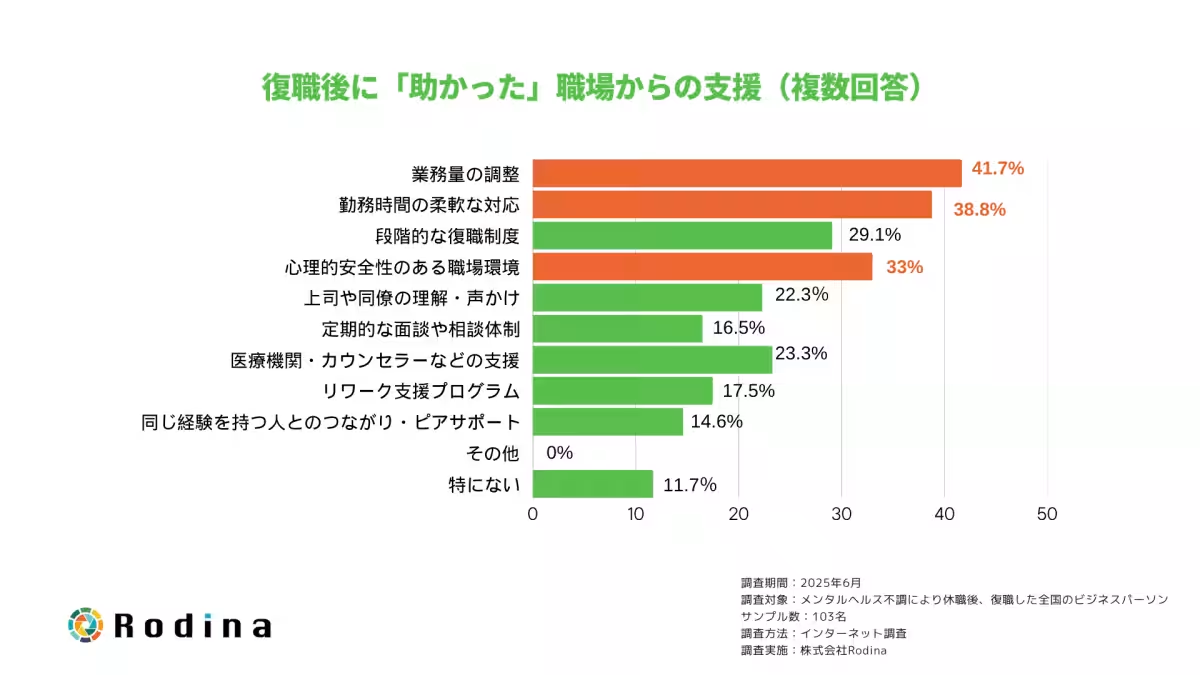
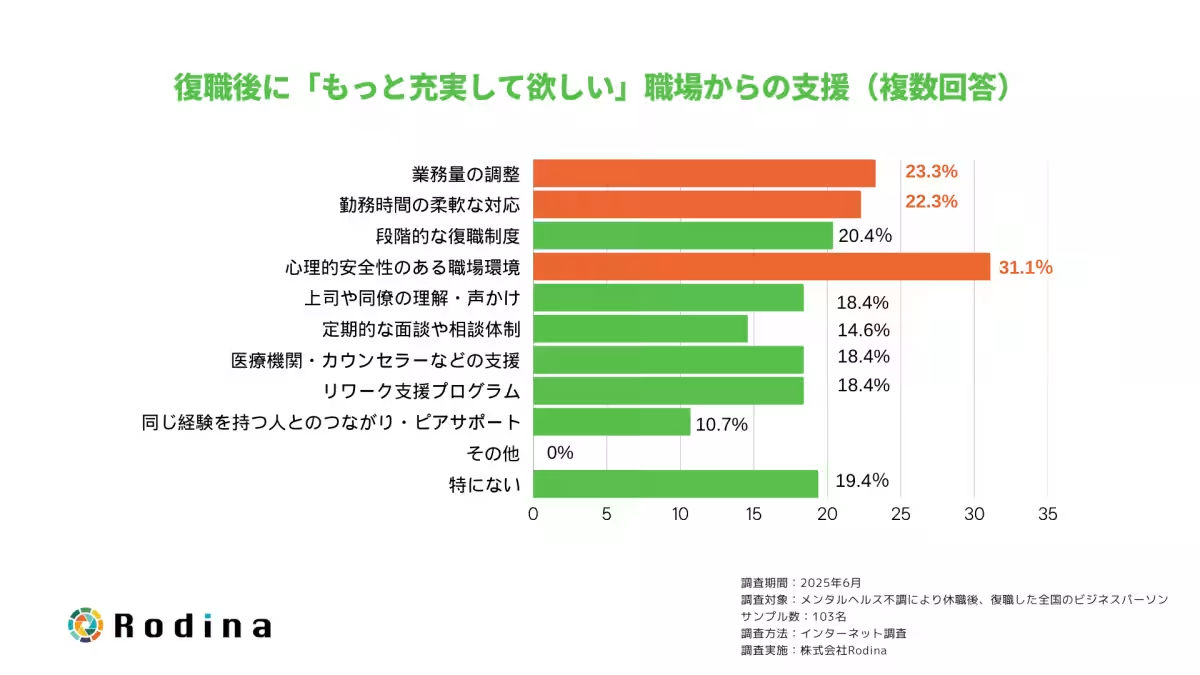
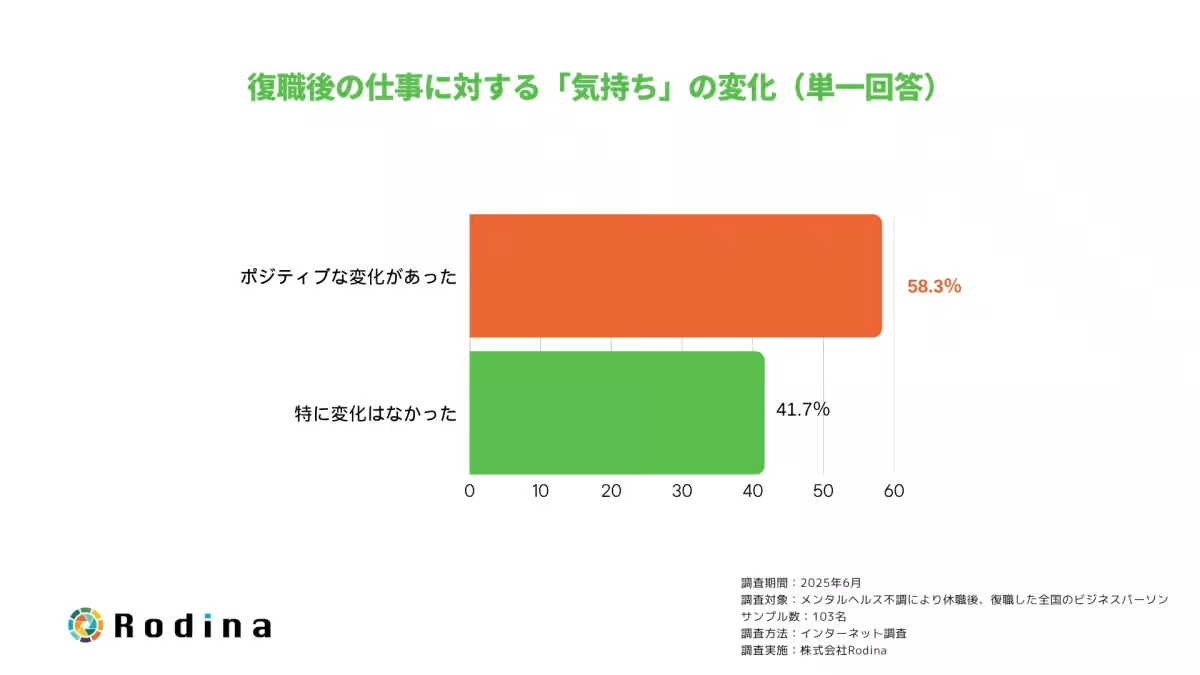
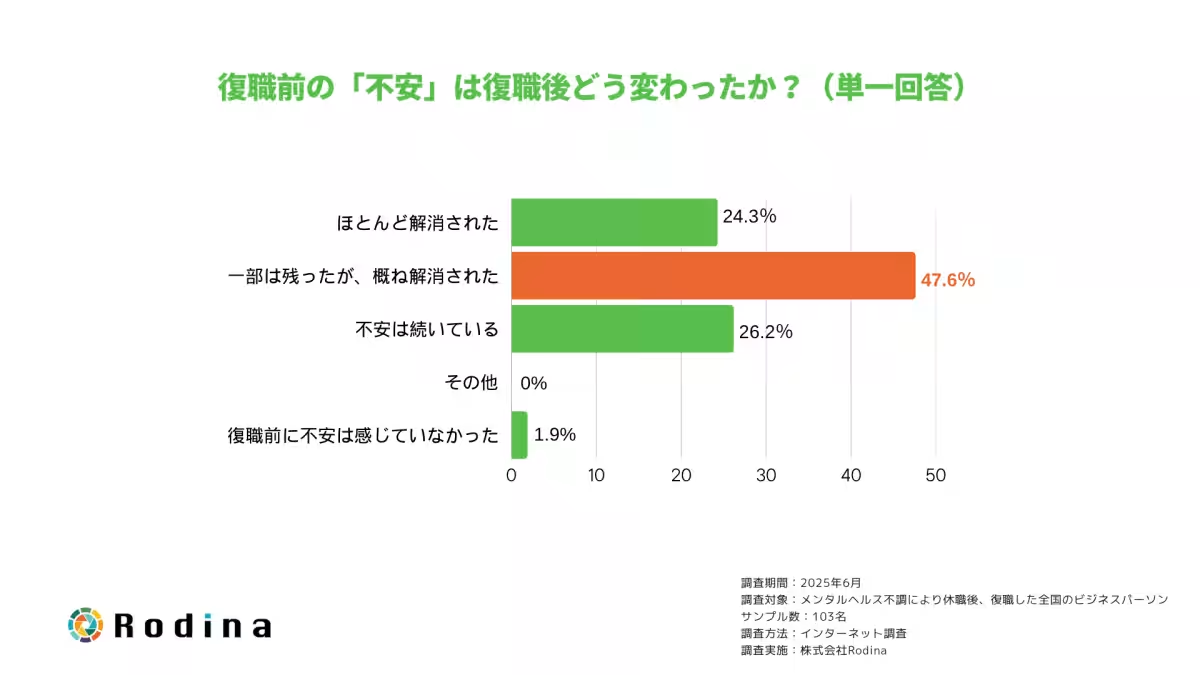


Topics Health)










【About Using Articles】
You can freely use the title and article content by linking to the page where the article is posted.
※ Images cannot be used.
【About Links】
Links are free to use.